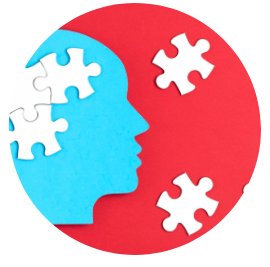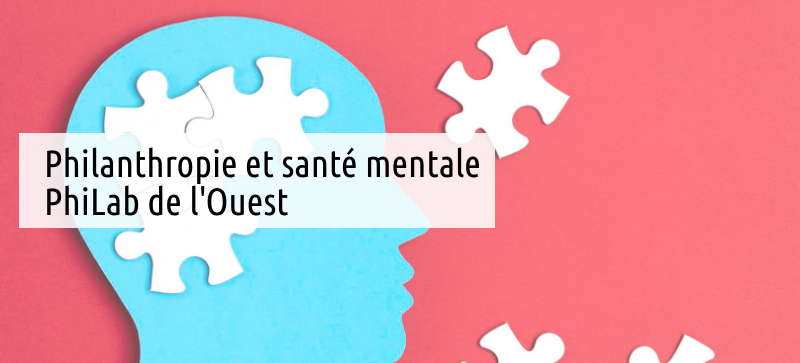 Suicide is the leading cause of death in Canada’s children aged 10 to 14. Opioid overdoses are setting records in Canada’s west, with monthly overdose deaths reaching over 100 in British Columbia. Alarming is also the fact that 80-90% of nursing home senior residents are living with mental illnesses and Atlantic provinces have the highest concentration of seniors aged over 65 in Canada.[1] Prior to the COVID-19 pandemic, spending on mental health as a share of total health care budget in Canada was 10.6%, trailing behind OECD countries like France (15%), Norway (13.5%) and Germany (11.3%).[2] The COVID-19 pandemic has only amplified the struggles with mental health across all age groups and locations, requiring a much higher financial commitment than before. In order to address mental health issues, Canada needs collective action, and the philanthropic sector is well positioned to play a key role.
Suicide is the leading cause of death in Canada’s children aged 10 to 14. Opioid overdoses are setting records in Canada’s west, with monthly overdose deaths reaching over 100 in British Columbia. Alarming is also the fact that 80-90% of nursing home senior residents are living with mental illnesses and Atlantic provinces have the highest concentration of seniors aged over 65 in Canada.[1] Prior to the COVID-19 pandemic, spending on mental health as a share of total health care budget in Canada was 10.6%, trailing behind OECD countries like France (15%), Norway (13.5%) and Germany (11.3%).[2] The COVID-19 pandemic has only amplified the struggles with mental health across all age groups and locations, requiring a much higher financial commitment than before. In order to address mental health issues, Canada needs collective action, and the philanthropic sector is well positioned to play a key role.
“Philanthropists’ ability to take risks, and act quickly and flexibly, makes them ideally placed to drive change in mental health care.” (World Economic Forum 2021). For example, a Montreal-based Graham Boeckh Foundation has responded quickly to the brewing need for integrated youth mental health services — the need only heightened by the pandemic — by committing $10 million to these services together with Bell Let’s Talk. To date, the Boeckh Foundation has assembled four large Integrated Youth Service projects, two in Quebec and two in Ontario and British Columbia respectively. Similarly, recognizing that COVID-19 pandemic has exacerbated mental health issues across the country, a Toronto-based Slaight Family Foundation is distributing $30 million amongst 19 Canadian organizations that provide mental health services to the public.
Through close relationship with their fundees, philanthropists gain knowledge about immediate needs in communities that require timely responses. It is this extensive knowledge about the farming community and their needs that motivated Lesley Kelly to co-establish the Do More Ag Foundation (DAMF), an organization that champions mental health of Canadian farmers. The three main pillars of DAMF are to bring awareness of mental health and mental illness; to build a community that provides a safe environment for farmers and ‘farm families’ to be able to speak up and share their experiences; and to serve as a hub of mental health resources that farming communities can access in their locations. This foundation also facilitates mental health education and literacy to agricultural community at no cost.
While philanthropists can be the drivers of change, they are not immune to experiencing mental health challenges themselves. Included in this edition is a closer look at the mental health struggles many in the third sector are experiencing as a result of the COVID-19 pandemic. Burnout, compassion fatigue, stress, anxiety and worry due to uncertainty are borne by much of the non-profit workforce.[3] While the easing of restrictions and higher level of vaccinations will alleviate some of the challenges, long-term supports and adequate resources are required to address many of the mental health issues within or outside of the sector.
So how can philanthropy help? Surely, foundations and other philanthropic donors can increase financial contributions to organizations offering mental health supports or initiate mental health programs on their own. However, much can be done beyond funded activities. Philanthropists can bring mental health issues into sharper focus, advocate on behalf of vulnerable communities, build capacity within the mental health sector and collaborate with governments but also with each other.
The Special Edition on Philanthropy and Mental Health, led by PhiLab’s Western Hub, attempts to cover philanthropy’s role in dealing with mental health issues, as well as how the philanthropic sector is dealing with these same issues internally.
Cet article fait partie de l’édition spéciale de Décembre 2021 : Philanthropie et santé mentale. Vous pouvez trouver plus d’informations ici
[1] Newfoundland and Labrador Medical Association Fact Sheet – https://www.nlma.nl.ca/documents/document_23.pdf
[2] A New Benchmark for Mental Health Systems, OECD, 2018.
[3] “The Pulse Check with Sector Leaders on Mental Health”, The Philanthropist – https://thephilanthropist.ca/2021/07/pulse-check-with-sector-leaders-on-mental-health/


